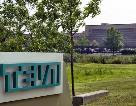
Tzvi Ben Gedalyahu
A7 News
The “doom and gloomers” were declaring the end of capitalism and the stock market less than several months ago, but several Israeli firms, led by the giant Teva Pharmaceuticals, have recorded near-record highs in Israel and in New York. In Tel Aviv, the major indices have recovered well over half of their losses.. Teva, the world’s largest generic drug firm and with a market capital of nearly $45 billion, said it will report higher-than-expected earnings for the second quarter on Tuesday. Teva predicted that earnings will soar to record highs in the second half of this year and will increase by approximately one-third next year.
Its stock closed a new high of $50.67 on the NASDAQ exchanges in New York on Friday.
Other Israeli companies also have proven to be good bets for investors. Cellcom, the country’s largest cellular phone provider, has continued to report earnings beyond analysts’ expectations, and its whopping dividend is more than 10 per cent, based on current market prices. Cellcom's share prices are up from $19 to more than $28 on the NASDAQ exchange. Its all-time high is nearly $36.
Orbotek, which dropped from more than $26 to less than $3 the last two years, has more than tripled in valued the past several months. The company, based in Yavne between Tel Aviv and Ashdod, designs, manufactures and services of production solutions for specialized applications in the supply chain of the electronics industry worldwide.
Even the bank stocks have recovered most of their losses while dozens of American banks have ended up in bankruptcy and others remain up to 80 percent below their record highs. Bank of Israel Governor Stanley Fischer has noted that Israel’s relatively tough regulations have saved the country from the banking crisis that shocked the American economy and resulted in global panic.
On the other side of the ledge, Israel Chemicals, whose stock soared on the potash price surge last year, remains far below its record high.
Market analysts have warned that the current rally may be a “bear trap” and that prices could plunge if another financial crisis hits the United States or if war breaks out in the Middle East.
However, economists think that Israel is better off than other countries in weathering any crisis. Bar-Ilan economics professor Ben-Zion Zilberfarb recently stated, "Most countries I know would be happy to trade positions with us, at least on the economic front. Our recession ought to be milder."
Most countries I know would be happy to trade positions with us, at least on the economic front.
While the stock market has risen, investors have also placed their bets on the local currency. The dollar, which was trading as high as 4.25 shekels several month ago, now is down to below the 3.85 level, although Bank of Israel Governor Fischer, who is continuing to buy dollars for the Bank, said last week that the apparent majority who think the dollar will continue to fall may be in for a surprise.
The dollar’s value is crucial for American immigrants who hold on to their dollars. The greenback was valued at five shekels several years ago, and those who held on to their bucks saw their savings plunge by more than one-third as the dollar sank to 3.25 shekels last year.
The rate recently has been around the four-shekel mark, but the dollar again started dropping two weeks ago and now is valued at 3.84 shekels.
No comments:
Post a Comment